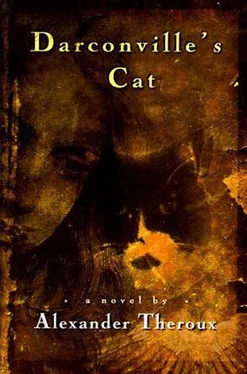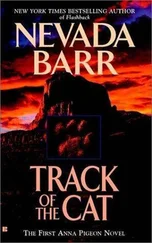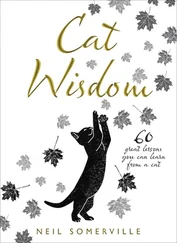It occurred to Darconville that the expression, “ignorance is bliss,” was a perception curiously unavailable to the ignorant as he considered, with great misgivings, the sad and inarticulate desperviews there whose identities had gone soft on them and whose grasp of reality was so slight and so arbitrary and so grotesque that each could have easily stepped from there into the hot pornofornocacophagomaniacal set of Bosch’s unmusical hell and fit, snugly.
The meeting, finally, adjourned. A partition was rolled back, revealing at another section of the long room several tables with bottles of soft drinks (no liquor) and plates of cookies, candy, and cake. Papers rattled, people coughed, and chairs shifted as everyone withdrew.
“Y’all ever see so dang much shuck for so little nubbin?” complained President Greatracks who — a fake giant among real pygmies — stomped toward the food in the company of several pipe-smoking lackeys, all dodging about in his circumference. No, no, they agreed, no, they hadn’t. His arms upon the boobies’ shoulders, you quickly saw the gudgeon bite. No, no, they repeated, not at all. “Sombitches,” he said, picking up five thumbprinted marshmallows and stuffing them into his mouth. “I can hear their brains rolling about like B-B’s in a boxcar.”
The Quinsy faculty, during the refreshments, took the occasion to gossip, but faction didn’t really constitute disunity. It was as if, somehow, they had all been destined by some temporal and spatial anti-miracle of history to come together at the same place and time and to know each other on the instant by some mystic subtlety for mates, perhaps in the paradox of peculiar faces which, while each was different, all looked as though God had smeared them when still wet. They didn’t have to talk. They weren’t speakers, really. But they were experts at malversation.
“I know about budgets,” said Miss Throwswitch, the drama teacher, with a scrawl of mockery under the rims of her eyes as she poured a soda. “This year, you watch, we’ll be doing Chekhov in clothesbags and clunkies.”
“They are saying”—Prof. Fewstone’s standard opening line, never without its veiled threat—”they are saying that over in Richmond the legislature is cutting us off without a dime unless we put some Mau-Maus on the faculty.” A history professor, Fewstone always kept to that one note, like a finch; his sour doctrines, masquerading as brands of economics and politics, fit his reputation as a miser far better than the hackberry-colored jacket he never took off, perhaps for that elegant pin (compass, square) awarded him by some Brotherhood of Skinks or other who worshipped trowels and pyramids. “Now in my book, The Rehoboths: Reform or Reglementation ? I put forth the theory—”
“Attitudinizing,” murmured Miss Gibletts, the Latin teacher whose thin, dry, hectic, unperspirable habit of body made her somewhat saturnine. She looked like St. Colitis of the Sprung Chair. Turning away to find another conversation, she carefully managed to avoid the dark stranger with the French name who’d just been introduced and who was standing all alone.
Miss Dessicquint, the assistant dean, looked like Nosferatu — a huge mustachioed godforgone, inflexible as a Dutch shoe, who was given to lying about her age before anybody asked her. She closed her eyes and begun to hum. “Look,” she sneered, nudging her secretary and sometime bowling partner, Miss Gupse, an unhealthy-looking little poltfoot with one of the longest noses on earth. “There, by the table, in harlequin shorts.”
“Oh no. Floyce.”
“The flower of fairybelle land.”
“He irks me, that one.”
“He?”
Miss Gupse, smiling, caught the irony and licked her nose. “She.”
“ It !” said Miss Dessicquint, wagging a tongue long as a biscuit-seller’s shovel. Her secretary had to turn around to stop the smile glimmering down the flanks of her steep nose. “He looks like a Mexican banana-split.”
“I wonder,” swallowed little Miss Gupse, “how those people”—she looked up over a cookie—”well, do it.”
“Have you ever had the occasion,” asked Miss Dessicquint, pausing for dramatic effect, “to look at the east end of a westbound cow?”
Floyce R. Fulwider, reputedly a ferocious alcibiadean, was a balding, fastidious art teacher — he pronounced Titian, his favorite painter, for instance, to rhyme with Keatsian — who could often be seen skipping across the Quinsy campus holding by his fingertips the newly wet gouaches and undernourished para-menstrual creations of his students or, as he called them, his “popsies.” The college teemed with stories about the felonious gender-switching parties he threw, when he’d paint his windows black, put on his Mabel Mercer records, and encourage everyone to don feather boas and run around naked. He couldn’t have liked it more. But Miss Dessicquint didn’t like it and told Miss Gupse, confidentially, that he was getting a terminal contract this year. “Rome,” she whispered into her companion’s ear, “wasn’t burnt in a day.”
Then, turning, they saw Darconville.
“I hope he isn’t a bumbie.”
“He looks normal to me,” said Miss Gupse.
“Well, you know what they say. And it’s true,” said Miss Dessicquint, with eyes like frozen frass, “there’s a thin line between madness and insanity.”
Miss Gupse, never strong, secretly thought herself the object of this cut and that very evening would proceed to call her sister in Nashville to inquire tearfully about a job there. True, that particular afternoon she had been in the midst of her mois . But the memory of having a big nose from childhood is perhaps at the bottom of more havoc than one can ever know.
In one corner of the room, occupying much of it, stood Dr. Glibbery, a walrus-arsed microbiology professor with a face, spanned by a dirty ramiform mustache, that had the nasty whiteness of boiled veal. His body resembled the shape in microcosm and odor in fact of one of those nineteenth-century lamps, the kind with a reservoir that gurgled periodically, emitted a stench of oil, and often exploded. A fanatical right-wing at-once-ist, he bullied his students — calling them all “Dufus”—with incredible lies about the difficulty of taking a doctorate and how, in pursuit of his own, he’d lived on ketchup sandwiches, got hookworm from going barefoot, and had to study upsidedown to keep awake. In point of fact, he had taken his degree from one of those just-about-accredited polytechnical millhouses in Virginia, identified usually by its initials, where the only requirements for graduation were to belong to the DeMolay and have two thumbs and a reasonably erect posture.
“None of these here dufuses work anymore. Well,” pontificated Dr. Glibbery, “I’m going to knock their tits right into their watch-pockets for them, OK? You won’t spy no grade of A in my roll-book,” he said, “for love nor money.”
He mumped a fistful of horehound drops and winked.
“ Or money,” corrected Prof. Wratschewe, doyen of the English department and proud author of several monographs, still, alas, awaiting the recognition of an indifferent world: “Bed-Wetting Imagery in Chatterton”; “Packed Earth as Anti-Resurrection Symbol in Wordsworth”; “The Caesura: Rest Home of Rhetoric”; and one slim book, Menus from Homer (o.p.).
But Dr. Glibbery only farted and grinned.
Miss Pouce, standing there, almost died of embarrassment — and, turning quickly, banged into a wall. Great snorts of laughter accompanied this, then grew — the lackeys, going beetred, doubled over with hilarity — as Greatracks, mimicking her, waddled yoketoed into the same wall, went crosseyed, and grabbed his nose. Qwert Yui Op, a midget Tibetan-Chinese, and Miss Malducoit, of the dirigible hips, both in math, applauded — and she spilled her drink. Darconville went to pick up her cup. “Thank you very much,” said Miss Malducoit coldly, stepping in front of him, “I can do it myself.”
Читать дальше












